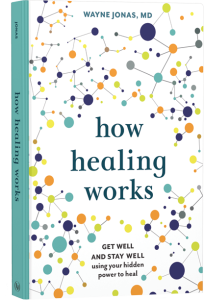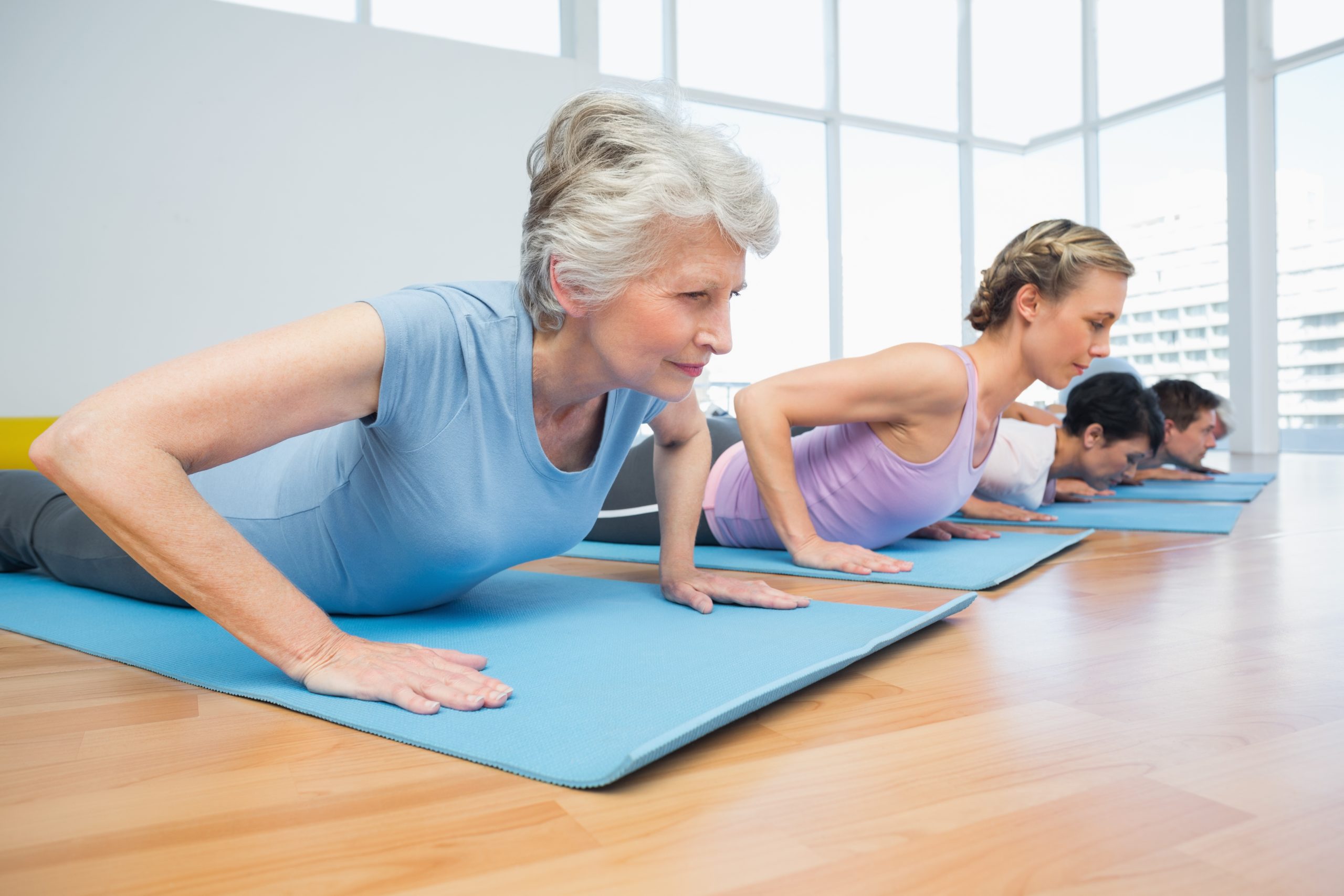Where do you go from here?
Genie’s grandmother lived to be 101.
She was 50 when Genie was born. So, while she probably considered herself middle-aged if she thought about it, she was just halfway through her allotment of trips around the sun.
Her grandmother’s long life has given Genie a special perspective. “At 51, I don’t think ‘My life is mostly over.’ Instead, I think, ‘Well, I could have 50 more years on the planet—better take care of myself.’”
**
In Julie’s family, the genetics are different. Heart disease has taken a toll, with Julie’s father, brothers, and now mother passing away from it. While her parents lived into their 60s and 70s, her brother Thaddeus was just 45.
But Julie isn’t giving in. She knows that behaviors and environment can change the way the body reads genes. Once a college athlete, Julie still works out regularly, and she goes paddleboarding with her own college-aged daughter. The point isn’t to get back into playing shape or pass for 30 but to stay as healthy as possible and enjoy time with loved ones. Julie’s family knows firsthand how precious this time can be.
The midlife perspective
Creating whole person health in your 50s is a matter of perspective. Do you see yourself as “over the hill?” Have you declared yourself “old” and given up on learning new things, finding a partner, or simply exercising?
In this decade, your body and mind present you with a choice: work on creating whole person health or wait to see if you won the genetic lottery … or not.
Should I expect a midlife crisis?
Maybe, maybe not. Psychologist Erik Erikson called the time from age 40 to 64 “middle adulthood.”[i] While some of us do face a crisis of identity, Erikson and other experts say the major question adults in this life stage face is, “Can I make my life count?”
Erikson called the main project of midlife “generativity,” meaning producing or creating something we believe is worthwhile and potentially lasting. You may experience this through your children, your career, or other contributions to society.
Try our free Midlife Milestones tool
Do you feel creative, productive, or stuck? Our free Midlife Milestones tool can help you determine where you are now and decide what you might like to accomplish or experience.
A healthy body in your 50s
Here are some things you can do to build physical health in this decade.
- Make physical movement a habit. Muscle mass begins declining after 30. You may lose 3 to 5 percent each decade.[ii] Being active helps you hang on to muscle and even build it.
- Sleep seven to nine hours a night. Getting enough sleep makes a huge difference to your memory, alertness, ability to maintain a healthy diet, and much more.[iii]
- Maintain a healthy weight. This does not have to mean “thin.” Instead, ask yourself: Does my weight raise my risk for cancer, diabetes, arthritis, and other diseases? If it does, am I OK with that? Is my family? Are there other ways I can reduce the risks?
- Manage alcohol consumption. This is more important than ever as you get older, because as you age, your body contains less water.[iv] The beverages that barely gave you a buzz in your 30s can cause a hangover today. Many people change their drinking habits as they mature.
Seeing a health care provider
Recommendations vary, even among experts. We’ve listed some essential health screenings to have in your 50s below. When you’re over 50, a shingles vaccine is advised. Your doctor will likely also recommend a vaccine against pneumonia and COVID-19.[v]
Health Screening Checks for Your 50s |
|
Screening |
Who needs it? |
| Colon and rectal (colorectal) cancer check | All adults aged 45 to 75, every year or as often as your doctor recommends. |
| Blood pressure check | All adults 18 and older. |
| HIV test | Everyone aged 15 to 65, plus older people who have not been screened before. |
| Pap smear, HPV test or both | Women aged 30 to 65, plus older women at higher risk of cervical cancer. |
| Breast X-ray (mammogram) to check for cancer | Women aged 40 and older, every year or when your doctor recommends. |
| Complete eye examination, including the back of the eye (retina) | Every year starting at age 50, even if you do not wear glasses or contacts. |
A standard physical examination does not go deep enough to find the root causes of preventable diseases, including heart disease, diabetes, and many cancers. Ask your doctor to do an integrative health visit using the HOPE Toolkit to learn how you can support yourself for better physical, emotional, and spiritual health.
Specialists, questions, and time
Bring any questions, including how often to return, with you. If you have a specific condition, ask your health care provider whether you should see a specialist. This could be as simple as consulting with a gynecologist about hormone therapy for menopause symptoms or a cardiologist about heart disease prevention.
If you have had cancer, talk with your doctor about whether you should be seeing a cancer specialist for what is often called survivorship care. Ask your oncologist to go beyond the usual survivorship checklist and how you can achieve wellness, even with and after cancer.
While you want to find a clinician you can talk freely with and enjoy seeing, it’s not realistic to expect to spend an hour with them, even just once a year. But most physicians have multiple ways to answer your questions, including email and calling an advice nurse. (Please do not use email for an emergency.)
An ounce of prevention
Your 50s are when health screenings really start to count. Half of all cancers happen in adults who are age 66 and older.[vi] Some cancers, such as colon and rectal cancer, start developing long before you have symptoms. Checking for problems can help find them early when they are easiest to treat.
Below is a list of screenings recommended in your 50s by the United States Preventive Services Task Force and the National Institute on Aging.
You may need screenings that are not listed here. Ask your health care provider what to do based on your personal health history, medications, family history, and other circumstances.
Don’t forget your teeth!
In some countries, and in years past, adults over 50 were often missing some or all of their natural teeth. This is much less common today in the United States. If you think you can’t afford to see a dentist, ask your health care provider about low-cost or free clinics.
Seeing the dentist for a checkup and cleaning at least once a year helps you avoid whole-body inflammation from inflamed gums and bacteria in your mouth.[vii] This inflammation can harm your heart and even shorten your life.
Some resources for your 50s
- Our Healthy Aging Guide is a free, downloadable guide on all aspects of getting older.
- Our Self-Care Guide helps support your mind, body and spirit health at any age, but it’s especially important now.
- Do you need to start taking vitamins and supplements now? Our free infographic offers help.
- If your home, yard, or where you live is driving you crazy, learn how to make it stress free.
- Learn what the time around menopause is called and how to be more comfortable.
Books
- Aging Backwards by Miranda Esmonde-White
- Advocates movement practice along with an excellent, easy-to-read description of what happens physically as we age and how we can affect those changes with activity.
- How Healing Works by Wayne Jonas, MD
- How do your mind, body, and spirit work together in creating health? How can you look deeply to discover the causes of illness and support good health? The ideas in this book are more important than ever as you get older.
- True Age by Morgan Levine, PhD
- Are you as old as the calendar says? Or younger? Learn about the difference between your age in years and your physical aging.
References
[i] Malone JC, Liu SR, Vaillant GE, Rentz DM, Waldinger RJ. Midlife Eriksonian psychosocial development: Setting the stage for late-life cognitive and emotional health. Dev Psychol 2016;52(3):496-508. doi:10.1037/a0039875
[ii] Harvard Health Publishing. Preserve your muscle mass. February 19, 2016. Available at https://www.health.harvard.edu/staying-healthy/preserve-your-muscle-mass. Accessed June 13, 2022.
[iii] Mander BA, Winer JR, Walker MP. Sleep and human aging. Neuron 2017 (94): 19-36. Available at https://www.cell.com/neuron/fulltext/S0896-6273(17)30088-0. Accessed June 13, 2022.
[iv] National Institute on Aging. Facts About Aging and Alcohol. Available at https://www.nia.nih.gov/health/facts-about-aging-and-alcohol#effects. Accessed August 5, 2022.
[v] US Centers for Disease Control and Prevention. Recommended vaccines by age. 27 to 60 years. Available at https://www.cdc.gov/vaccines/vpd/vaccines-age.html. Accessed August 5, 2022.
[vi] National Cancer Institute. Age and cancer risk. Available at https://www.cancer.gov/about-cancer/causes-prevention/risk/age. Accessed August 5, 2022.
[vii] Office of Disease Prevention and Health Promotion. Oral health for older adults: Quick tips. Available at https://health.gov/myhealthfinder/doctor-visits/regular-checkups/oral-health-older-adults-quick-tips. Accessed August 5, 2022.

Take Your Health Into Your Own Hands
Drawing on 40 years of research and patient care, Dr. Wayne Jonas explains how 80 percent of healing occurs organically and how to activate the healing process.

